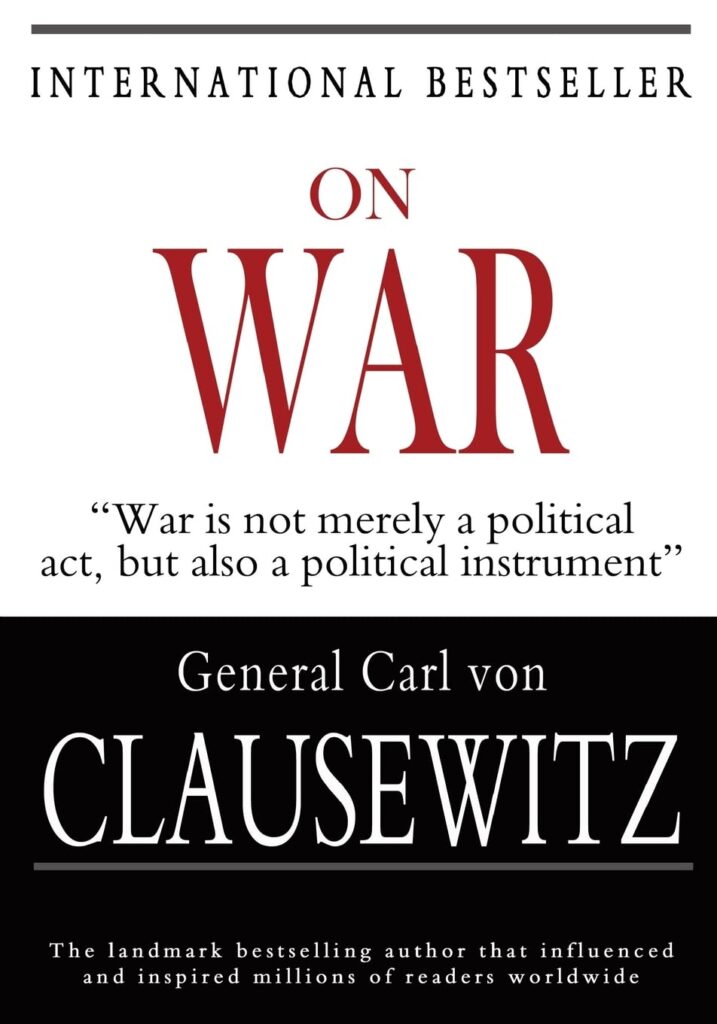‘On War’ is a seminal work on military strategy and warfare written by the Prussian general and military theorist Carl von Clausewitz. Originally published in 1832, the book has had a profound impact on the study of war and has been influential in shaping military strategy and thought. Clausewitz’s ideas have been widely studied and debated, and his work continues to be relevant in contemporary discussions on warfare and international relations.
‘On War’ is a comprehensive analysis of the nature of war, its political and social implications, and the strategies and tactics employed in armed conflict. Clausewitz draws on his extensive military experience and observations of warfare to provide a detailed examination of the complexities and dynamics of war. His work has been influential in shaping the understanding of war as a political instrument and has had a lasting impact on military thinking and strategy.
Understanding Clausewitz’s Concept of War
Clausewitz’s concept of war is deeply rooted in the idea that war is a continuation of politics by other means. He argues that war is not an isolated phenomenon but is inherently linked to political objectives and aims. According to Clausewitz, the ultimate goal of war is to achieve political ends, and military action is a means to that end. This concept has had a profound impact on the understanding of war as a tool of statecraft and has influenced the development of strategic thinking in military and political circles.
Furthermore, Clausewitz emphasizes the importance of understanding the nature of war as a dynamic and evolving phenomenon. He argues that war is characterized by uncertainty, friction, and the interaction of opposing forces, and that it is essential to adapt to changing circumstances and conditions. Clausewitz’s concept of war as a complex and multifaceted phenomenon has been influential in shaping the study of warfare and has provided valuable insights into the nature of armed conflict.
The Trinity of War: People, Government, and Military
One of the key concepts in ‘On War’ is Clausewitz’s idea of the “trinity” of war, which consists of the people, the government, and the military. According to Clausewitz, these three elements are interconnected and play a crucial role in shaping the conduct and outcome of war. The people provide the passion and willpower necessary for waging war, the government establishes the political objectives and direction of the conflict, and the military executes the strategy and tactics required to achieve those objectives.
Clausewitz’s trinity of war highlights the complex interplay between political, social, and military factors in armed conflict. He argues that successful warfare requires a harmonious relationship between these three elements, with each playing a distinct but interconnected role. This concept has been influential in shaping the understanding of war as a multifaceted phenomenon that involves not only military action but also political and social dynamics.
Furthermore, Clausewitz’s trinity of war has been influential in shaping military strategy and thinking. It has provided a framework for understanding the complexities of armed conflict and has emphasized the importance of considering political and social factors in the planning and execution of military operations. The trinity of war continues to be relevant in contemporary discussions on warfare and has had a lasting impact on the study of military strategy.
The Importance of Strategy in Warfare
| Aspect | Importance |
|---|---|
| Planning | Crucial for achieving objectives and minimizing risks |
| Resource Allocation | Determines the effectiveness of military operations |
| Tactical Advantage | Allows for outmaneuvering and outsmarting the enemy |
| Adaptability | Enables response to changing circumstances and enemy tactics |
| Coordination | Essential for unified and synchronized military actions |
Clausewitz emphasizes the importance of strategy in warfare as a means to achieve political objectives through the effective use of military force. He argues that strategy is essential for aligning military action with political aims and for adapting to changing circumstances and conditions. According to Clausewitz, successful strategy requires a deep understanding of the nature of war, as well as careful planning, coordination, and execution of military operations.
Furthermore, Clausewitz’s concept of strategy has been influential in shaping military thinking and has provided valuable insights into the complexities of armed conflict. His emphasis on the importance of strategic thinking and planning has had a lasting impact on the study of warfare and has influenced the development of military doctrine and practice.
The Relationship between Politics and War
One of the central themes in ‘On War’ is the relationship between politics and war. Clausewitz argues that war is inherently linked to political objectives and aims, and that military action is a means to achieve those ends. He emphasizes that successful warfare requires a clear understanding of political goals and objectives, as well as careful coordination between political and military leaders.
Furthermore, Clausewitz’s ideas have been influential in shaping the understanding of war as a tool of statecraft. His concept of war as a continuation of politics by other means has provided valuable insights into the complexities of armed conflict and has emphasized the importance of aligning military action with political objectives. The relationship between politics and war continues to be relevant in contemporary discussions on warfare and has had a lasting impact on the study of military strategy.
The Influence of ‘On War’ on Military Strategy
‘On War’ has had a profound influence on military strategy and thinking. Clausewitz’s ideas have been widely studied and debated, and his work continues to be influential in shaping military doctrine and practice. His emphasis on the importance of understanding the nature of war as a dynamic and evolving phenomenon has provided valuable insights into the complexities of armed conflict.
Furthermore, Clausewitz’s concept of war as a continuation of politics by other means has had a lasting impact on the study of warfare. His ideas have influenced the development of strategic thinking in military and political circles, and his work continues to be relevant in contemporary discussions on warfare and international relations.
Critiques and Contemporary Relevance of Clausewitz’s Ideas
While ‘On War’ has had a profound impact on the study of warfare, it has also been subject to critiques and debates. Some scholars have argued that Clausewitz’s ideas are too focused on conventional warfare and do not adequately address contemporary forms of conflict, such as asymmetric warfare and terrorism. Others have criticized his concept of war as a continuation of politics by other means, arguing that it oversimplifies the complexities of armed conflict.
Despite these critiques, Clausewitz’s ideas continue to be relevant in contemporary discussions on warfare. His emphasis on the importance of understanding the nature of war as a dynamic and evolving phenomenon has provided valuable insights into the complexities of armed conflict. Furthermore, his concept of war as inherently linked to political objectives has influenced the development of strategic thinking in military and political circles.
In conclusion, ‘On War’ by Clausewitz is a seminal work on military strategy and warfare that continues to be influential in shaping military doctrine and practice. His ideas have provided valuable insights into the complexities of armed conflict and have emphasized the importance of aligning military action with political objectives. Despite critiques, Clausewitz’s work remains relevant in contemporary discussions on warfare and international relations, making it essential reading for anyone interested in understanding the nature of war.





